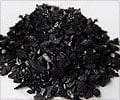Recently, a new study has revealed that carbon dioxide released from the Deep Ocean helped in ending the last Ice Age.

The finding gave scientists an insight into how the ocean affects the carbon cycle and climate change.
Atmospheric CO2 levels fluctuate from about 185 parts-per-million (ppm), during ice ages, to around 280 ppm, during warmer periods like today (termed interglacials). The oceans currently contain approximately sixty times more carbon than the atmosphere and that carbon can exchange rapidly (from a geological perspective) between these two systems (atmosphere-ocean).
The international team studied the composition of the calcium carbonate shells of ancient marine organisms that inhabited the surface of the ocean thousands of years ago in order to trace its carbon content.
Patrizia Ziveri, ICREA professor at the ICTA, UAB, said that these results will help to better understand the dynamics of human-induced CO2 accumulation in the atmosphere since the ocean was an important carbon sink and the largest reservoir of carbon on our planet.
The study is published in Nature.
Advertisement










